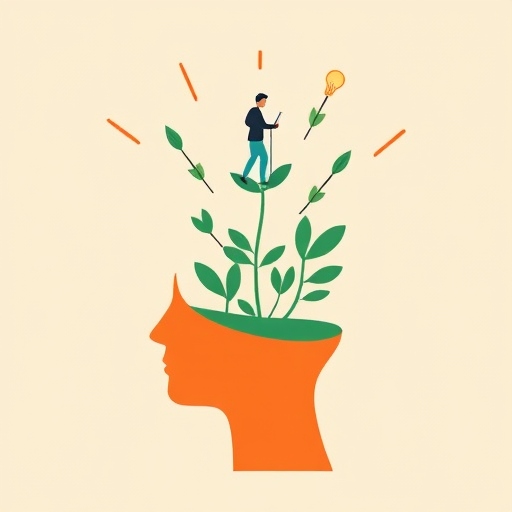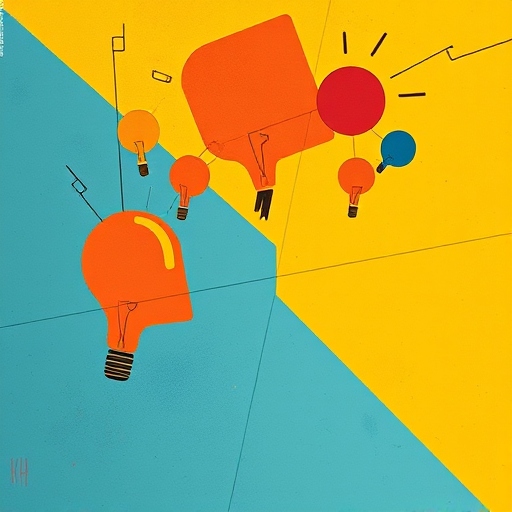In our fast-paced world, where everyone seems to be constantly racing against time, the idea of learning something profound in just ten minutes might seem far-fetched. However, there are simple, yet transformative lessons and concepts you can grasp quickly, which can influence the rest of your life in powerful ways. These aren’t just trivial facts or tips; they are powerful ideas that can change the way you view yourself, your interactions, and your approach to life’s challenges.
In this post, we’ll explore several valuable lessons and knowledge points that you can learn in just 10 minutes, which will serve you well throughout your life. Whether you’re looking for ways to improve your mindset, enhance your productivity, or simply live a happier life, the following ideas are timeless and practical.
1. The Power of Mindfulness: How to Practice in 5 Minutes a Day

Mindfulness, the practice of staying present and fully engaged in the moment, has gained immense popularity in recent years. However, mindfulness is not a complex concept; it’s something you can begin practicing right now, and it will provide benefits for the rest of your life.
How to Practice Mindfulness in 5 Minutes:
- Focus on Your Breath: Take a few deep breaths. Breathe in slowly through your nose, hold it for a second, and exhale slowly through your mouth. Focus all your attention on the sensation of your breath going in and out.
- Observe Without Judgment: As thoughts arise, acknowledge them, but don’t get attached. Let them come and go without judgment or analysis.
- Scan Your Body: Notice how your body feels. Are you tense or relaxed? Pay attention to any areas of discomfort and gently release tension.
The benefits of mindfulness include reduced stress, improved emotional regulation, better focus, and an overall sense of well-being. Practicing mindfulness for just a few minutes every day can significantly impact your mental health, relationships, and productivity.
2. The 80/20 Rule (Pareto Principle): How to Use It to Maximize Efficiency

The 80/20 Rule, also known as the Pareto Principle, is a powerful concept that suggests that 80% of your results come from 20% of your efforts. This principle can be applied to nearly every aspect of life—whether it’s in business, productivity, or even personal relationships.
How to Apply the 80/20 Rule:
- Identify Key Tasks: In your work or personal life, identify the 20% of tasks that generate 80% of the results. For example, if you’re working on a project, focus your energy on the most impactful activities that move the project forward.
- Delegate or Eliminate the Rest: Once you identify the key tasks, delegate or eliminate the less impactful 80% of tasks. This allows you to focus on what truly matters and optimize your time and energy.
- Focus on Strengths: In your personal life, identify the people and activities that bring you the most joy or fulfillment, and prioritize them. Spend less time on activities that drain you.
By focusing on the most important and productive activities, you can work smarter, not harder, and achieve better results in less time.
3. The Growth Mindset: How to Cultivate Resilience and Achieve More

The concept of a growth mindset, developed by psychologist Carol Dweck, is a game-changer when it comes to personal development. People with a growth mindset believe that their abilities and intelligence can be developed through dedication and hard work, as opposed to having a fixed mindset, where they believe their abilities are predetermined and unchangeable.
How to Cultivate a Growth Mindset:
- Embrace Challenges: Instead of avoiding difficult tasks, view them as opportunities to grow. Take on challenges that stretch your abilities, and learn from any setbacks.
- Focus on Effort, Not Innate Talent: Remind yourself that success comes from consistent effort, not from a natural gift or talent. Celebrate hard work and perseverance over innate ability.
- Learn from Criticism: Rather than taking criticism personally, use it as a learning tool. Consider feedback as valuable information to help you improve.
By adopting a growth mindset, you can overcome obstacles, increase resilience, and achieve higher levels of success in both your personal and professional life.
4. The Art of Effective Communication: How to Listen, Not Just Hear

Communication is at the core of almost every aspect of our lives—whether we are engaging with colleagues, friends, family, or even ourselves. Effective communication, however, is not just about speaking well; it’s about listening actively and empathetically. One of the most useful skills you can develop in life is the ability to listen, not just hear.
How to Improve Listening Skills:
- Be Fully Present: When someone is speaking to you, give them your full attention. Avoid distractions like checking your phone or thinking about your response while they are talking.
- Avoid Interrupting: Let the speaker finish their thoughts before you speak. Interrupting can make the speaker feel unheard and disrespected.
- Ask Open-Ended Questions: To show your interest and keep the conversation flowing, ask questions that require more than a yes or no answer.
- Validate Emotions: Acknowledge the speaker’s feelings by saying things like, “That sounds really tough” or “I can see why you’d feel that way.”
Being a better listener improves relationships, resolves conflicts, and helps you learn from others. Active listening fosters trust and understanding and enables you to connect on a deeper level with those around you.
5. The Importance of Gratitude: How Practicing It Changes Your Perspective

Gratitude is more than just a feel-good emotion. Practicing gratitude regularly can shift your perspective, reduce stress, and improve your mental and physical health. Research has shown that people who regularly practice gratitude tend to be happier, more optimistic, and less anxious.
How to Practice Gratitude in 5 Minutes:
- Write a Daily Gratitude List: Spend a few minutes each day writing down three things you’re grateful for. They don’t have to be big; it could be something as simple as a good cup of coffee or a meaningful conversation with a friend.
- Reflect on Your Blessings: Take a moment each day to reflect on what’s going well in your life. Acknowledge the positive aspects, even on difficult days.
- Express Gratitude to Others: Take time to thank someone who has helped or supported you. Expressing gratitude to others strengthens relationships and spreads positivity.
By making gratitude a daily practice, you train your brain to focus on the positives rather than the negatives, leading to an overall improvement in your mental well-being.
6. Time Management: How to Take Control of Your Day with Simple Techniques

Time is one of our most valuable resources. Learning how to manage your time effectively can drastically improve productivity, reduce stress, and help you achieve your goals. You don’t need to overcomplicate things; simple time management techniques can make a big difference.
Simple Time Management Techniques:
- The Pomodoro Technique: This involves working for 25 minutes straight, followed by a 5-minute break. After four Pomodoros, take a longer break. This helps maintain focus and prevents burnout.
- Time Blocking: Plan your day by blocking off specific time slots for different tasks or activities. This ensures that you stay on track and prioritize important tasks.
- The Two-Minute Rule: If a task will take less than two minutes, do it immediately. This helps you stay on top of small tasks and prevents them from piling up.
By learning effective time management, you gain control over your schedule, reduce procrastination, and achieve more with less effort.
7. The Importance of Physical Health: Simple Habits for Lifelong Wellness

Physical health plays a crucial role in overall well-being. A healthy body supports a healthy mind, and the habits you form now will have a lasting impact on your life. In just 10 minutes, you can learn the basics of maintaining physical health and start incorporating them into your daily routine.
Simple Habits for Lifelong Wellness:
- Stay Active: Aim for at least 30 minutes of physical activity each day. This could include walking, jogging, yoga, or even stretching.
- Prioritize Sleep: Sleep is vital for mental and physical health. Aim for 7-9 hours of quality sleep each night.
- Stay Hydrated: Drinking enough water is essential for bodily functions. Aim to drink at least 8 glasses of water a day.
Small changes, like taking the stairs instead of the elevator or drinking more water, can lead to long-term health benefits.
8. Financial Literacy: Understanding the Basics of Money Management

Financial literacy is one of the most important skills to have, yet it’s often overlooked. Knowing how to manage your money, invest wisely, and avoid debt will serve you well throughout your life. In just a few minutes, you can learn some key principles that will set you on the path to financial security.
Key Principles of Financial Literacy:
- Pay Yourself First: Set aside a portion of your income for savings or investment before paying any bills or spending on non-essentials.
- Understand Debt: Avoid high-interest debt like credit cards. If you do have debt, focus on paying it off as soon as possible.
- Invest Early: Even small investments can grow significantly over time due to compound interest. Start investing as early as possible, whether it’s in stocks, mutual funds, or retirement accounts.
By mastering basic financial principles, you can set yourself up for a lifetime of financial stability and growth.
Conclusion: Lifelong Lessons in Just 10 Minutes
In today’s world, we often feel like we’re too busy to learn something new, yet

You must be logged in to post a comment.